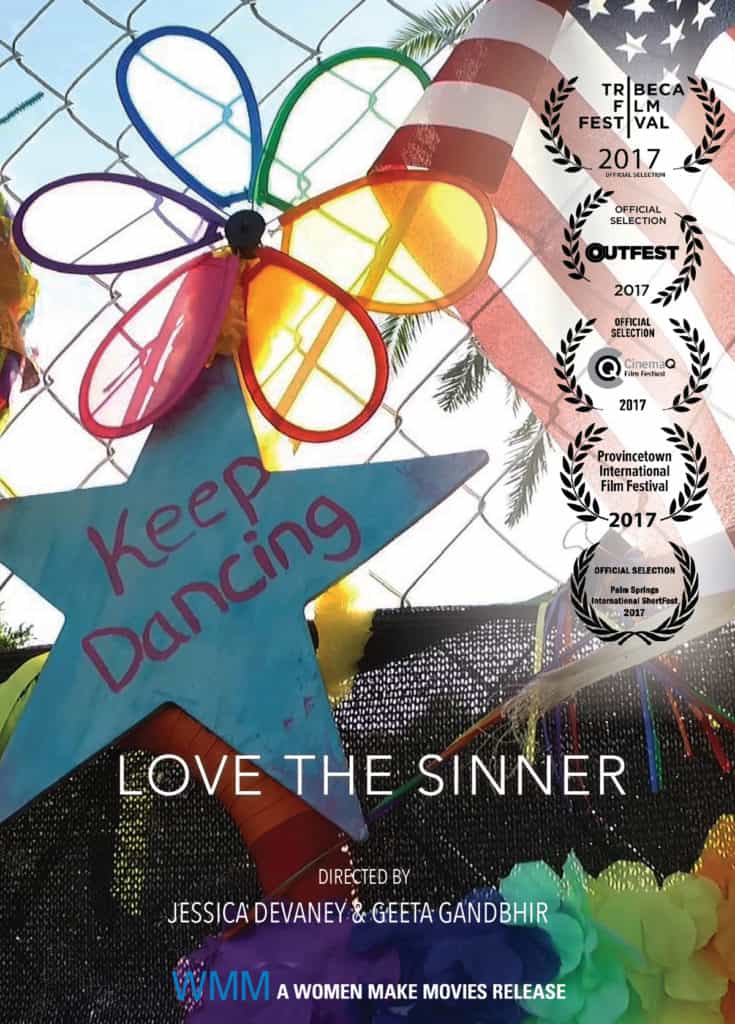What’s the connection between silence and the church’s historic misunderstanding, vilification, and rejection of sexual and gender minorities?

Today marks three years since the Pulse Nightclub shooting, the deadliest incident of violence against LGBTQ people in U.S. history, killing 49. While many rallied with support in the aftermath, far too many churches, pastors, and Christians remained silent, or simply, as Julie Rodgers pointed out, failed to publicly name “the significance of the shooter targeting gay people.” What’s the connection between that silence and the church’s historic misunderstanding, vilification, and rejection of sexual and gender minorities? Love the Sinner, a 16-minute documentary by Jessica Devaney and Geeta Gandbhir explores that question.
Raised in an evangelical world of Moral Majority politics, purity pledges, and anti-abortion activism, Devaney became restless and dissatisfied with her church’s post-9/11 anti-Muslim sentiments, patriarchal attitudes, and advocacy of conversion therapy for gay people, among other things. Finding their answers to her questions inadequate at best, she left both the church and her hometown as a young woman, embraced her lesbian identity, and eventually found herself so far removed from her early influences that she essentially forgot where she’d come from.
Then the mass shooting took place at Pulse, and the realization that hatred towards LGBTQ people could incite that level of violence jolted her back to her religious roots and made her wonder what role faith-based homophobia may have played in, if not the incident itself, the largely inadequate response to it.
Devaney interviews:
- her mother, a woman torn between love for her two gay children and love for her church;
- the current pastor of her childhood church, who sees homosexuality as equivalent to sins like criminal behavior and spousal abuse, and is deaf to how that might strike a gay person seeking to find a place at his church;
- a young gay man who survived being shot in the back at the Pulse massacre;
- and Joel Hunter, who stepped down from his Orlando megachurch pastorate in 2017 and “has been passionate in calling on evangelicals to reach out to the LGBTQ community, particularly in the wake of the Pulse nightclub shooting.” Hunter’s comments provide a pivotal moment in the film when he asserts that the questions 34-year-old Devaney is asking will provoke the very “redefinition of our community;” that the word tolerance, which used to signal compassion, is, in light of the Pulse shooting, a “cold, dead, almost cruel” concept; and that it will take “people like me” to turn things around, people who previously—whether out of ignorance, preoccupation, or unwillingness—failed to ask themselves what real love from the church might look like to LGBTQ people.
This brief but deeply moving film provides an intimate glimpse into the lingering effects of terror on God’s LGBTQ children. Devaney’s voice is free of bitterness, and she asks of herself what she asks of the church—that we all be willing to do the slow, hard work of building the kind of relationships needed for real change.
Watch the film, distributed by Women Make Movies, on-demand here.
Kristyn Komarnicki is director of dialogue and convening for Christians for Social Action. She leads the Oriented to Love dialogue program, helping diverse Christians build unity that is deeper than agreement.
is director of dialogue and convening for Christians for Social Action. She leads the Oriented to Love dialogue program, helping diverse Christians build unity that is deeper than agreement.


